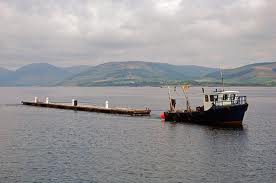Commercial Court rejects attempt by an insurer to avoid a policy on the grounds of failure on the part of the insured to disclose material facts
The Defendant Insurers alleged that the Claimant Insured was not entitled to claim under the policy due to (a) material non-disclosure and (b) a breach of the implied warranty of seaworthiness in s.39 Marine Insurance Act 1906.
The Claimant insured a floating dock with the Defendant for a voyage from Russia to Vietnam. Sixteen days after the voyage commenced, the dock encountered a force 6 typhoon, but after repairs to the lashings tying the pontoon to the deck were carried out it was able to continue. Four days later, the dock encountered a tropical storm and was seriously damaged. As a result, the Claimant served a notice of abandonment on the Defendant. The Defendant subsequently purported to avoid the policy for the reasons set out above. The document which was the subject of the non-disclosure allegation formed part of the towage plan and showed the maximum wave height that the dock could withstand.
As regards the allegation of material non-disclosure, the Court rejected this on the facts. Even if the document in question had not been disclosed, the Defendant could not avoid the policy for three reasons:
- disclosure had been waived by the Defendant’s agreement that it would insure without seeing the towage plan as long as it was approved by a Classification Society;
- earlier drafts of the policy had contained the towage plan warranty, which although did not render disclosure unnecessary under s.18(3)(d) Marine Insurance Act 1906, rendered it superfluous given the short period of time between the deletion of the warranty and the issuing of the policy; and
- the Defendant was not induced by any failure to disclose, as the evidence was that they would in any event have insured on the terms that were actually agreed.
As regards the alleged breach of the implied warranty of seaworthiness, the most significant allegation was the deficiency of the pontoon securing arrangements. The Court held that the Defendant had not established by either factual or expert evidence that the dock was unseaworthy at the commencement of any part of the voyage.


